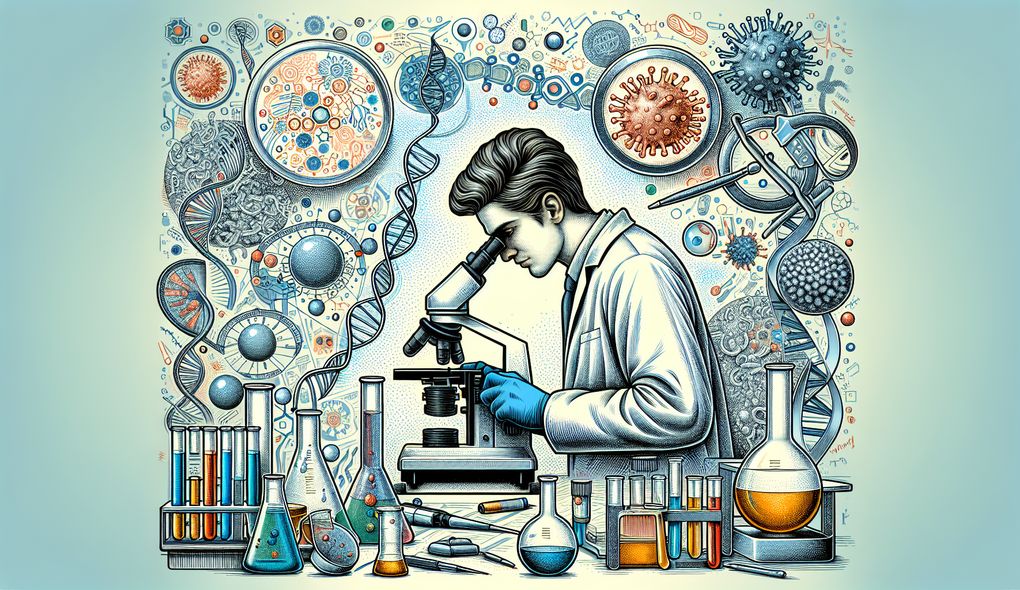How do you maintain ethical standards in scientific research?
INTERMEDIATE LEVEL

Sample answer to the question:
Maintaining ethical standards in scientific research is of utmost importance to me. I adhere to strict ethical guidelines and principles in all aspects of my work. I always ensure informed consent is obtained from research participants, and I maintain confidentiality and privacy of their data. Moreover, I follow the principles of integrity, honesty, and transparency in my research process. I conduct my research with the highest level of objectivity and avoid any biases or conflicts of interest. Additionally, I stay up to date with the latest ethical guidelines and regulations in the field of scientific research to ensure compliance.
Here is a more solid answer:
Maintaining ethical standards in scientific research is a top priority for me. Throughout my career, I have consistently followed strict ethical guidelines and principles. For instance, I always obtain informed consent from research participants, ensuring they have a clear understanding of the research objectives and the potential risks and benefits involved. To maintain confidentiality and privacy of sensitive data, I handle and protect research data with utmost care. I also strictly adhere to the principles of integrity, honesty, and transparency in my research process, avoiding any biases or conflicts of interest. Furthermore, I stay up to date with the latest ethical guidelines and regulations in the field of scientific research, attending workshops and training sessions regularly to ensure compliance with industry standards. By maintaining ethical standards, I ensure the credibility and reliability of my research outcomes.
Why is this a more solid answer?
The solid answer provides specific examples of how the candidate maintains ethical standards in scientific research. It highlights their experience in obtaining informed consent, handling sensitive data, and maintaining integrity. However, it could be improved by including more details about the candidate's experience and expertise in the specific techniques and practices of maintaining ethical standards.
An example of a exceptional answer:
Maintaining ethical standards in scientific research is ingrained in my approach as a biomedical scientist. I have a deep understanding of the ethical implications and responsibilities that come with conducting research. For instance, in my previous project on a new diagnostic test, I obtained informed consent from participants by explaining the purpose, potential risks, and benefits of the study in a clear and unbiased manner. To ensure confidentiality, I implemented secure electronic data systems and strict access controls. As a team leader, I established a research culture that emphasizes integrity and professional conduct. I conducted regular trainings on ethical practices and actively promoted discussions on ethical considerations within the team. Additionally, I have contributed to the development and implementation of research protocols that align with ethical guidelines and regulatory requirements. By constantly staying updated on the latest ethical developments, I ensure that my research is conducted ethically, transparently, and with a strong focus on human welfare.
Why is this an exceptional answer?
The exceptional answer goes beyond the basic and solid answers by providing specific examples and showcasing the candidate's expertise and leadership in maintaining ethical standards. It highlights their experience in obtaining informed consent, implementing secure data systems, and promoting an ethical research culture. It also demonstrates their commitment to staying updated on ethical developments.
How to prepare for this question:
- Familiarize yourself with the ethical guidelines and regulations relevant to the field of scientific research. Stay updated on any updates or revisions.
- Gain practical experience in obtaining informed consent from research participants and handling sensitive data.
- Develop a strong understanding of the principles of integrity, honesty, and transparency in scientific research and how to apply them in practice.
- Stay informed about the latest ethical developments and engage in discussions and workshops on ethical considerations in research.
- Consider seeking professional certification as a biomedical scientist, which often includes modules on research ethics and responsible conduct.
- Highlight any experience or examples from previous research projects where you demonstrated a commitment to maintaining ethical standards.
What are interviewers evaluating with this question?
- Ethical standards
- Compliance
- Objectivity
- Confidentiality

